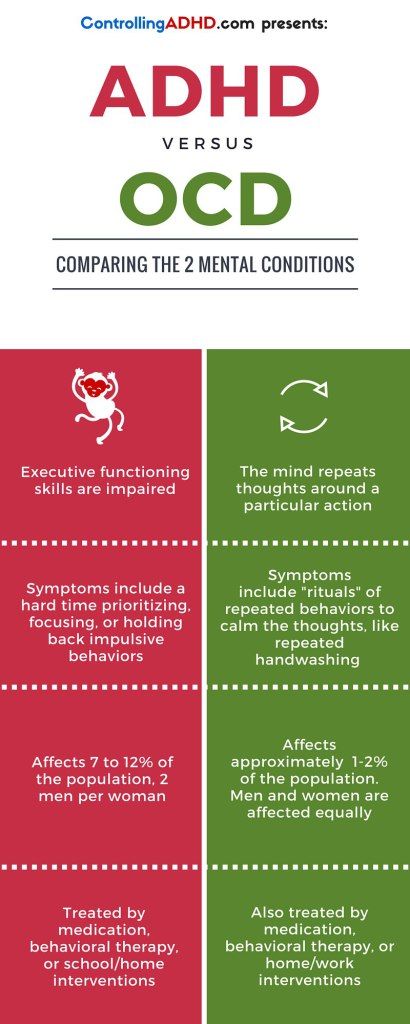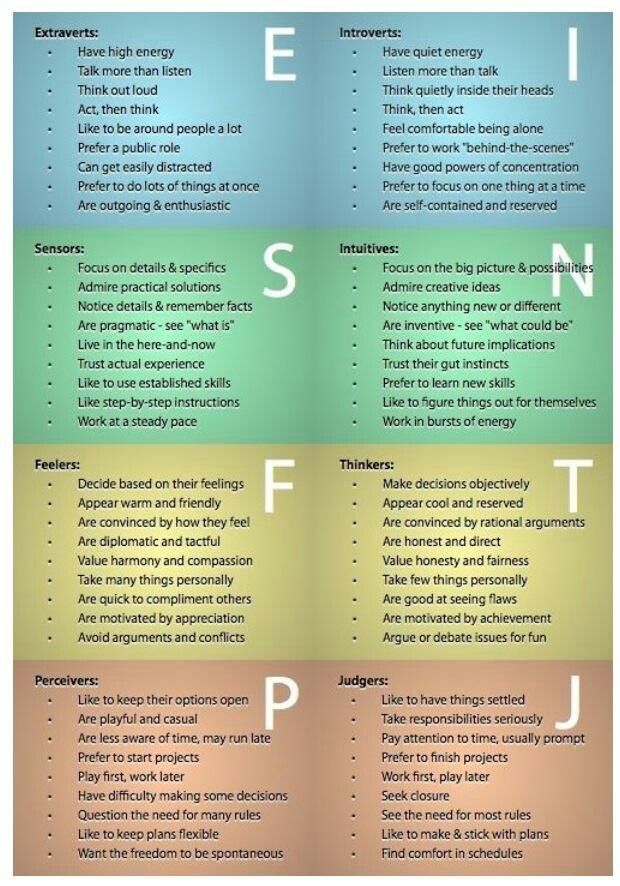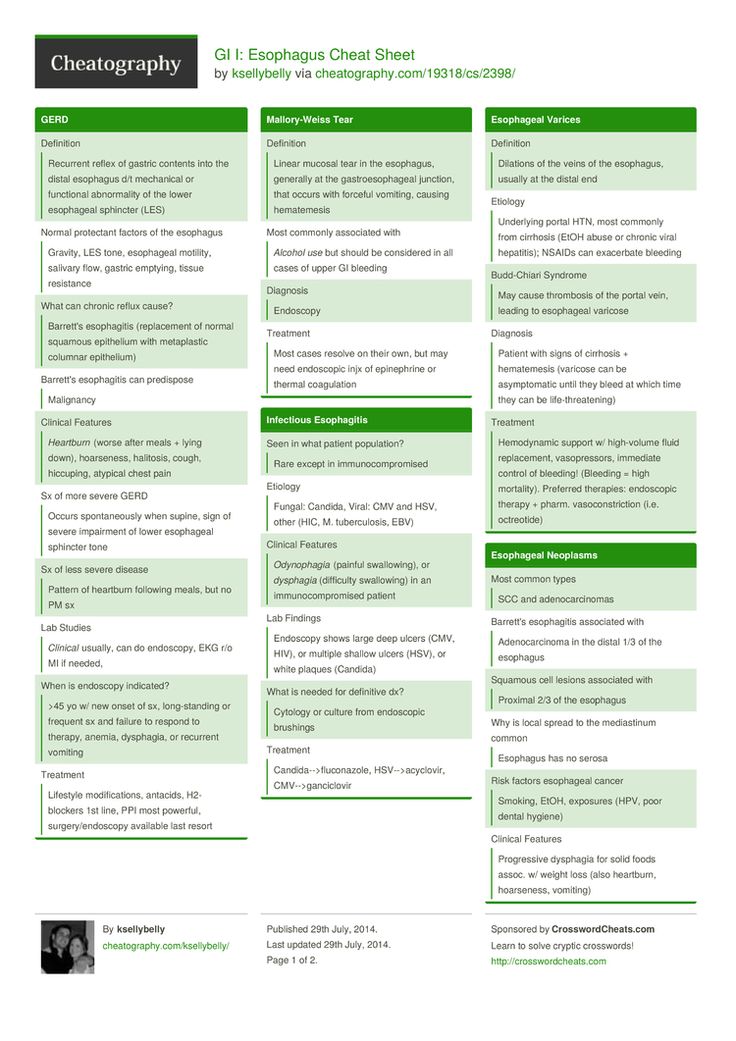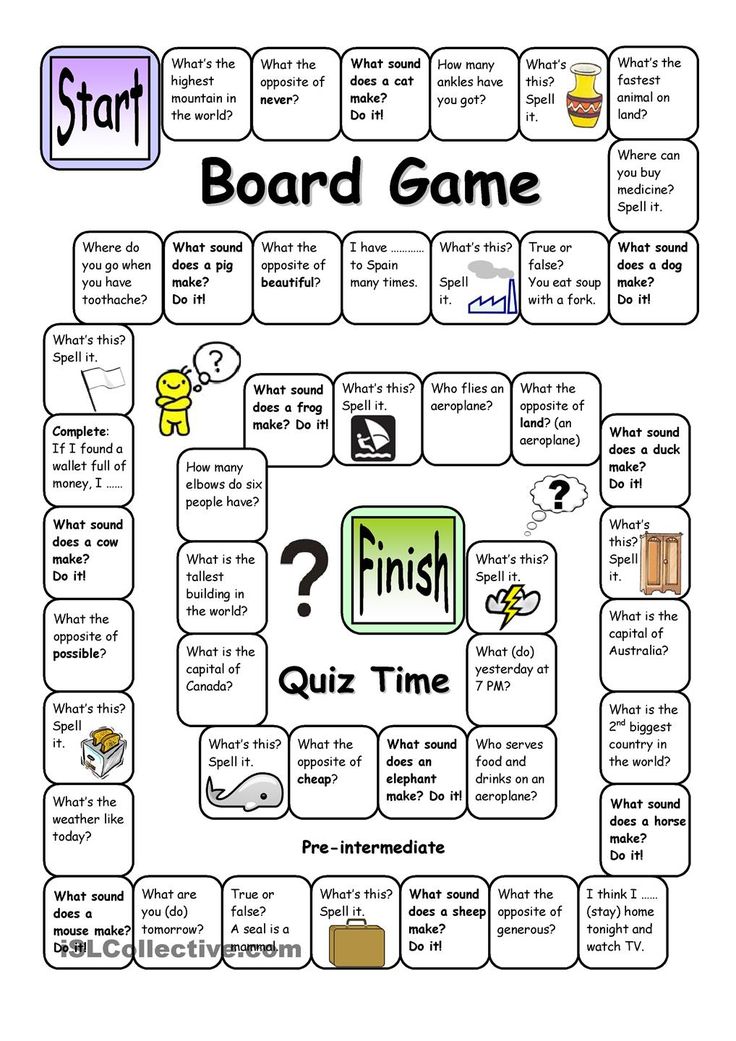Ghosting a friend is cruel
Ghosted By A Friend? 5 Steps To Moving On From Toxic Relationships
57 shares
- Share
- Tweet
Ghosting isn’t just for romantic relationships. Friendship ghosting is a real thing and can hurt just as much as a significant other leaving you without a word. This simple guide will help you deal with ghosting and move on from it in a healthy way.
When you think of ghosting you usually think of someone cutting off communication with you after chatting on a dating app or not texting you back after you’ve gone on a few dates. But believe it or not, ghosting can happen in friendships too, and unfortunately, it happened to me at one point.
I was hesitant to open up about this on the blog but I feel like my experience can help other people who have gone through this as well so I thought I’d share some steps I took to get over losing someone who I thought was one of my closest friends.
But first, for those of you who aren’t familiar with ghosting, here’s a simple definition…
What is Ghosting?
Ghosting is essentially when a person cuts off all communication with their friends or the person they’re dating. They do this with zero warning or notice beforehand. They avoid your phone calls or texts, social media messages, and posts, and even go as far as to avoid you in public.
This is essentially (or well…EXACTLY) what happened to me this a few years back and it was done to me by someone I considered as close as family.
In some regard, I think being ghosted by a friend can be even harder to deal with than a boyfriend, girlfriend, or love interest. Friends are supposed to be there for you no matter what, especially after you’ve gone through a lot with them, confided in them (and they in you), and made specific promises to each other to never walk out of each other’s life without explanation.
For weeks and months after the fact, I went over the whole situation in my mind and tried to come to some sort of conclusion as to why my friend did what they did. But in all honesty, I couldn’t figure it out and I don’t know if I ever will since they refused to have an adult conversation with me or even acknowledge my presence at all.
But in all honesty, I couldn’t figure it out and I don’t know if I ever will since they refused to have an adult conversation with me or even acknowledge my presence at all.
One of the hardest parts about being ghosted is that it comes without warning and typically as a surprise. This was definitely the case for me since I went from planning to meet up with my friend one day to the next day (and from then on) them ignoring me completely.
Ghosted by a Friend
Some other people shared their experiences with being ghosted with me and I was amazed at how similar all of our stories were…
My best friend since I was 10 unfriended me for unknown reasons a few years ago. I reached out numerous times but she will not answer me nor tell me the reason why. | RS
I have experience with it in a platonic relationship. Someone who was supposed to be a very close friend just stopped messaging me one day. I tried because I know relationships are a two-way street, but to no avail.
I find it extremely immature – if I did something, tell me. If you’re just too busy or moving in a different life direction, tell me. Don’t just disappear. | SZ
Even when you knew it wasn’t a good relationship and wasn’t bound to last, getting ghosted makes you feel like you need more answers. It almost makes you care more while you sit obsessing over what you did or didn’t do and how the other person could so quickly go to just completely ignoring you! | LA
I can so relate to all of these sentiments….especially the feeling of wanting ANSWERS. When the ghosting first happened, I was upset for many reasons. Sad, angry, and slightly depressed over losing what I considered a “good” and important relationship.
Now that I am more removed from it all, I am no longer “mourning” the lost friend, but I still feel this need to have closure. I am the type of person that likes closure in any and all situations…good or bad. If I did something wrong, tell me. If there’s something going on with you that changes this between us, tell me. Whatever it is, I’d rather end things as adults and with mutual respect for one another than be ignored like we are in kindergarten. But I realize this is a lot to ask of someone, especially if they are not as socially mature or empathetic as you are.
If there’s something going on with you that changes this between us, tell me. Whatever it is, I’d rather end things as adults and with mutual respect for one another than be ignored like we are in kindergarten. But I realize this is a lot to ask of someone, especially if they are not as socially mature or empathetic as you are.
As I said at the beginning, the reason I am sharing all of this is because I’ve gone through ghosting and now on the other side of it I’ve been able to reflect on the steps it took for me to get through it and MOVE ON. If my experience can help even one other person do the same, then this post will have been worth it.
5 Steps To Moving On From Toxic Relationships
Acknowledge Your Feelings
Whether you were best friends for years or just started hanging out, you’re bound to be upset, angry, sad, and probably confused. It doesn’t feel good to be ignored, avoided, or dumped, so everything you’re feeling is totally NORMAL and HUMAN. Don’t try to stuff down these emotions or put on a brave face. Give yourself some grace, sympathy, and understanding.
Don’t try to stuff down these emotions or put on a brave face. Give yourself some grace, sympathy, and understanding.
Talk It Out
If you were ghosted by someone close to you, it may be hard to open up to others about what you’re experiencing, especially if the “ghoster” was the person you usually went to to vent. But as hard as it is, putting your thoughts and feelings into words to another person can be extremely cathartic. When you share your experiences instead of holding them in and ruminating on them, you can begin to move out of the difficult rut that you’re in. Processing painful experiences is so much easier and more healing when done with someone else and not in your own mind. If you don’t feel comfortable talking to another friend or family member, consider seeing a therapist/counselor.
Prioritize Your Personal Wellness
When we are feeling down or upset about something, it can be hard to get motivated to engage in our typical healthy habits and to really take care of ourselves. But believe it or not, the basic tasks of eating well, getting good sleep, and moving your body are incredibly important to managing emotional and mental pain. Mind-body practices (yoga, meditation, etc.) are especially helpful in reducing the strain that sadness causes on our bodies and minds.
But believe it or not, the basic tasks of eating well, getting good sleep, and moving your body are incredibly important to managing emotional and mental pain. Mind-body practices (yoga, meditation, etc.) are especially helpful in reducing the strain that sadness causes on our bodies and minds.
Try To See The Other Person’s POV
Even though ghosting someone is incredibly cruel and probably something you yourself would never do, it can be helpful to consider the other person’s (the ghoster’s) perspective. It can help you to move on if you acknowledge that the person who ghosted you thought that he or she was doing the right thing. It may have been mean and cowardly, but some people who have ghosted others may sincerely believe it was the easiest way to let the other person down. They may have thought that ghosting gets their message across without confrontation. (Definitely not saying this right or FAIR, but it can help you move forward to consider the other person’s thinking process in making their decision. )
)
And finally…
Let It Go
Arguably the hardest, yet most important step; and definitely easier said than done. Whatever happened with you and your friend, or really in ANY negative situation in life, you’ll feel 10 times better once you stop dwelling on what was and start putting your energy towards your future. Using the mental space you were reserving for grieving the lost friendship for fostering REAL healthy relationships instead will help you move forward and fill the void your bad friend left. If anything, your experience being ghosted can help you learn that people don’t always show their true colors or only stay in friendships until they get what they want out of them. These types of “users” are not the people you would want to be friends with long-term anyway. They are takers and any friendship that isn’t reciprocal is not a good one to be involved in. It’s perfectly normal to worry about being ghosted again in the future, but stressing over that possibility is not worth all the opportunities you’d miss for true friendships by not moving on.
Have you ever been ghosted or been the ghoster? Share your experience and perspectives in the comments!
Stay connected:Subscribe to Healthy HelperInstagram: HealthyHelperFacebook: Healthy HelperTwitter: @Healthy_HelperPinterest: Healthy_HelperTikTok: KailaProulxBloglovin’: Healthy HelperBuy my BUDGET TRAVEL EBook!Shop with me on Amazon. Favorite products, fun finds, and more!The Only Reasons When It’s Okay to Ghost Them
Friendships have their ups and downs. But is ghosting a friend really the right way to end a friendship? Face the problem and talk about it instead.
Friendships can be just as complicated as relationships. There are arguments, misunderstandings, and upsets from time to time. However, friendships are precious and it’s important to hold on to the good ones. If you do want to end a friendship for whatever reason, is there ever a good excuse for ghosting a friend and walking away without a word?
However, friendships are precious and it’s important to hold on to the good ones. If you do want to end a friendship for whatever reason, is there ever a good excuse for ghosting a friend and walking away without a word?
Although commonly used in dating, ghosting someone doesn’t have to mean breaking up and disappearing only in a sexual relationship.
Ghosting a friend means you literally break up with them in the harshest way possible. It isn’t a term you use when you just stop talking to a casual acquaintance.
Ghosting a friend means you go from full to zero with someone significant in your life. [Read: Bad friend – 25 types of friends you must unfriend from your life]
Wait, ghosting a friend sounds kind of brutal, right?
Yes, because it is. Ghosting involves cutting all ties with someone without any warning, explanation, or word at all. It means completely letting go of communication with one of your very best friends.
There aren’t many reasons why you would ghost a friend. It would have to be something pretty drastic to make you consider it and even then, surely it’s better to sit down and work things out? Even if you decide to part ways and end the friendship, at least do it in an adult and respectful way.
It would have to be something pretty drastic to make you consider it and even then, surely it’s better to sit down and work things out? Even if you decide to part ways and end the friendship, at least do it in an adult and respectful way.
Ghosting is a devastating thing for the person on the receiving end. When you are close to someone, your absence may cause great distress in their lives, especially if you disappear without any explanation.
So, before you decide to do it to someone you love, think long and hard first. There is no turning back. [Read: What is Ghosting and how does it really affect you?]
The only reasons ghosting a friend MAY be warranted
We exaggerated the word ‘may’ there because there are really only a handful of reasons why it is appropriate, or fair, to ghost a friend.
Again, a very hurtful thing to do to someone’s psyche, just make sure you do it for a good reason. If you have a choice, it’s always better to talk to them or let them know you need to walk away.
NEVER ghost someone only because you’re too embarrassed or cowardly to actually let them know you feel hurt for sone reason. Grow up and talk it out, or slowly wean yourself away from a friendship if it’s hurting you.
Ghosting is an option, but it should never be used as an excuse to avoid a conversation.
Know, once done, there is likely no turning back or repairing the relationship. [Read: Got ghosted by someone? 10 clear signs and ways to deal with it]
Let’s look at a handful of reasons why it might be warranted to go full-on Casper the “Friendly” Ghost with a friend.
1. They cheated with your partner
A no-brainer. If someone cheats with your significant other, then there is no choice but to ghost them. It matters not why they did it, or if they were just “soulmates” and couldn’t help themselves. It isn’t just your boy/girlfriend’s fault that they got together. They’re both to blame.
Your friend broke the code and had an affair with someone you love, knowing how devastating it would be.
Instead of giving them the chance to apologize or explain, make it clear there is no forgiveness or explanation. Your friendship is no longer existent. [Read: 10 questions to ask before dumping a cheating partner]
2. They told your greatest secret
The type of secret they could tell that would be grounds for ghosting isn’t that you eat ice cream on Fridays when no one watches. The type of secret worthy of ghosting is if they tell people something so confidential that they promised to take it to the grave.
There is almost always room for forgiveness in a relationship if someone is sorry, but not if they told something about you that forever alters the way that you, and everyone else, sees you. If they betrayed you, it’s ghost time. [Read: Keeping secrets in a relationship – The must-know rules and exceptions]
3. Thy bashed you to other people
People are pretty predictable creatures. We all talk. If we want to be honest with ourselves, there isn’t a person alive who hasn’t said something nasty about a good friend in the heat of the moment or when in an argument with them, to another person.
But, if you find they continually say negative things about you and have nothing good to say, whether jealousy is a factor or not, it is time to let them go entirely. Make them a ghost from your past. [Read: One-sided friendship – 15 clear signs it’s time to cut them loose]
4. They have a relationship with your partner that is toxic
When you are good friends with someone, that doesn’t give them a license to get all chummy with your partner. Sure, we can all be friends. But, if you notice something more developing or even some flirting going on either way, then it might be time to cut ties and ghost.
That old saying about friends being tighter than sexual love is wrong. If they don’t respect your relationship with the person you love and keep boundaries, and it starts to affect your romantic relationship, cut them off.
Of course, perhaps talk about it with them first because maybe they aren’t aware of what they’re doing. But, if that doesn’t change anything, it’s time to pull a Ghostbusters on them.
5. Their friendship is toxic to you
Sometimes we become really close to people who are just not good for us. Some relationships become very co-dependent or abusive. If you are friends with a narcissist who continually breaks your heart, breaks plans when something better comes along, or robs you of your self-esteem, then it is time to say goodbye. [Read: How to tell if a friend is toxic & brings unhappiness to your life]
Narcissistic people don’t get it no matter how many times you explain it to them. Some friends are hurtful and continue to hurt you no matter what you say. That is when it is time to let go of the toxic relationship by cutting off it cold.
You can’t be close with a narcissistic personality, nor can you find a happy medium. In the end, if you let them back in, they will take advantage, take your heart, and leave you empty and bottomed out. [Read: Toxic people – 25 early warning signs to watch out for]
6. Every time you let them in, they hurt you
Let’s say you’re a people pleaser. Let’s also say that your friend messed up over and over. In that scenario, you might find it hard to break up with them but it might be time to just cut contact. Some of us are stronger than others. Some people never give up on a friend no matter how much they kick them.
Let’s also say that your friend messed up over and over. In that scenario, you might find it hard to break up with them but it might be time to just cut contact. Some of us are stronger than others. Some people never give up on a friend no matter how much they kick them.
But, the only way to save yourself is to cut the people who continually hurt you out of your life.
Sometimes even seeing their contact number pop up sends anxiety. It isn’t worth it.
You have other friends. And, if not, then you can make some. If all they do is hurt, it is time to ghost them. [Read: How to recognize a fake best friend before you get betrayed or hurt]
7. They have stolen something valuable from you
When a good friend has stolen something from you, then it is time to ghost them. Valuables don’t always come in the form of something physical. In general, if they steal anything from you that you can’t get back, like your trust, your love, or monetary items that meant something, then it is grounds for ghosting.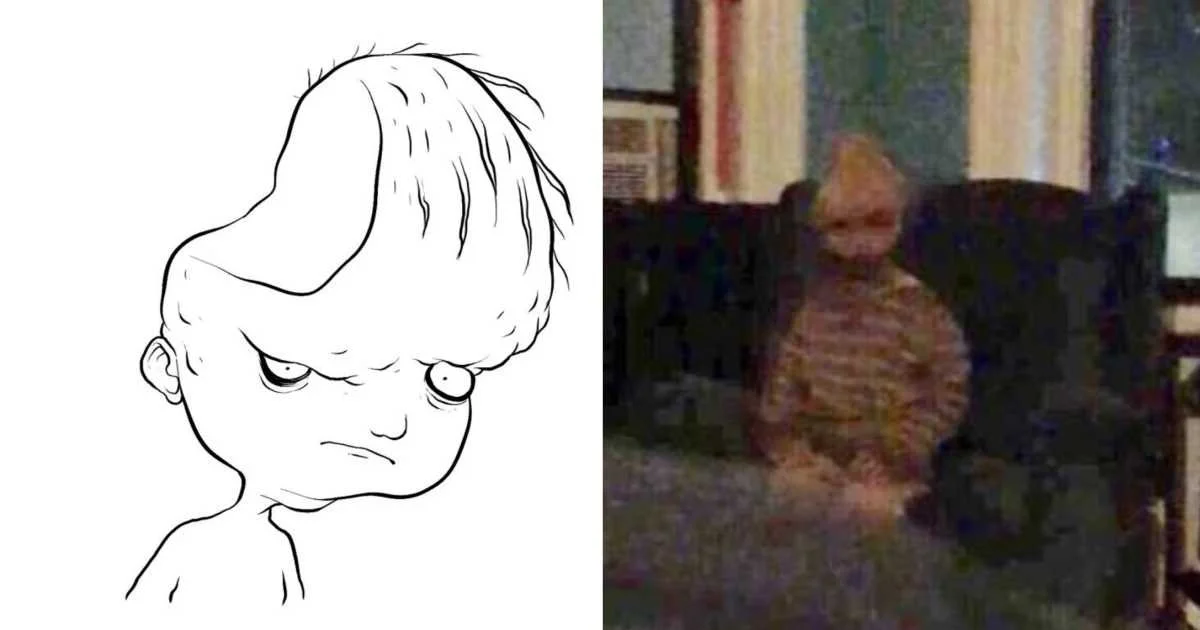
Hanging onto a bad friend isn’t going to bring whatever you lost back. It will only be a constant reminder of what is gone. Let them go and let yourself heal.
8. You can’t trust them
Whether it is talking behind your back, flirting with your boyfriend, or saying they’ll meet you at a bar and not showing up, if you can’t trust a trusted friend, then it is time to ghost friend them.
Trust is the cornerstone of any relationship, romantic or otherwise. Don’t stay friends with someone you wouldn’t turn your back on. It isn’t worth your time, your energy, or your anxiety. It is time to break it off and cut the cord. [Read: Be careful who you trust – 15 ways to recognize the backstabbers]
9. Their codependency causes you problems
There are times when close friends are way too needy. If their clinginess or possessiveness is causing a problem in your life, then you ghost them.
One of the hardest things to do is to hurt someone you are close to. But, if they hold on so tight they lose themselves and take you down with them, then it is time to move along for both of your sakes.
You can sink together, or cut them loose and regain your life. It really is that simple. [Read: 8 detailed ways to calmly deal with a jealous friend]
10. You just can’t forgive them
If they did something so egregious, no matter what it was, that you know in your heart you can never forgive them, holding onto the friendship isn’t doing either of you any favors.
Not only does it make it uncomfortable for you to be around one another, you probably experience a lot of anxiety over it. If you can’t forgive someone for what they did, then it is time to ghost them and move forward. [Read: What is a true friend? The 12 key characteristics of real friends]
Don’t tell someone you forgive them and then just keep them around to punish them. The kindest thing to do is just to let the friendship go and not make them grovel to get you back. Cut them off completely for you both.
Understand the consequences of ghosting a friend
For sure, there are some situations when ghosting a friend is the only open, but you need to be 100% sure.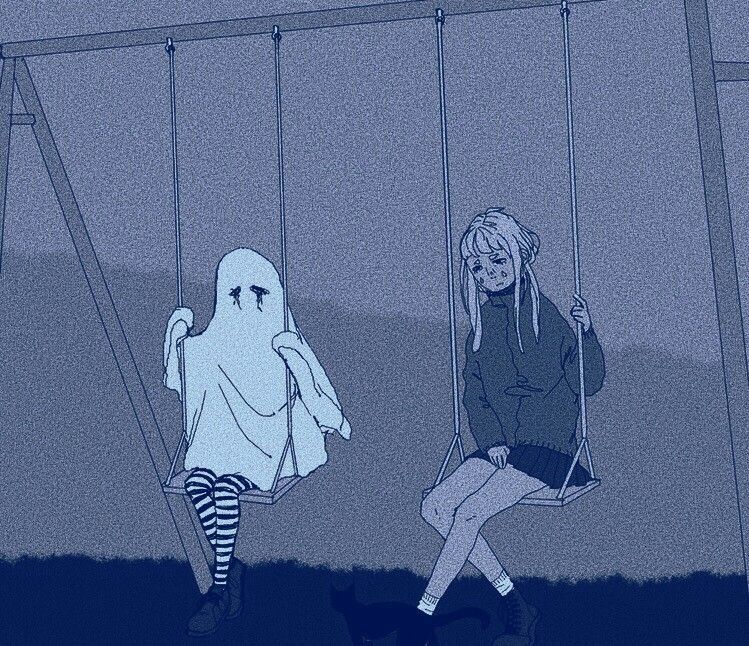 If you ghost someone and then regret it later, it’s likely that you can’t do anything to change it. There are few people who would be willing to forgive and forget a ghosting.
If you ghost someone and then regret it later, it’s likely that you can’t do anything to change it. There are few people who would be willing to forgive and forget a ghosting.
Perhaps the better option would be to sit down with this person and explain your problem with them. You don’t have to change your mind about ending the friendship but at least you know that you’ve gone about it the right way. Then, they can’t point the finger of blame at you for anything. [Read: How to break up with a friend – 5 respectful steps you must follow]
Friendships are precious but sometimes so-called friends turn into enemies. It could be the case that you think everyone in the metaphorical boat is rowing in the same direction, but if you look around, you’ll see someone drilling a hole in the bottom without your knowledge.
Basically, not everyone can be trusted. In the end, if you have to end a friendship, simply do it in a way that means you can hold your head up high afterwards.
[Read: Like ghosting? Prepare yourself for these 10 consequences]
Think through ghosting a friend before you put your plan into action. Once done, the fallout may be harsher than you saw coming and you don’t want to end up being sorry or regretting it.
Read: How to apologize for ghosting a friend and undo the damage you caused
Read: How to ghost someone when you’ve never ghosted anyone before
Read: Why being ghosted hursts so much and what you can do about it
Liked what you just read? Follow us on Instagram Facebook Twitter Pinterest and we promise, we’ll be your lucky charm to a beautiful love life.
Why are we lying? | Journal "Pharmacist Practitioner"
Articles
11/30/2014
It's time to stop lamenting the fact that all people are lying - anyway, nothing can be done about it. Let's try to figure out why they do it. The desire to catch each other in a lie should be replaced by the art of creating an atmosphere of trust
How often do we lie?
According to research, you may be told 10 to 200 lies in one day. Moreover, they lie to strangers more often than to acquaintances: during the first 10 minutes of acquaintance, untruthful information is heard at least three times. Extroverts lie more often than introverts, perhaps simply because extroverts communicate more with other people. Men lie about themselves 8 times more often than about others. Well, the strong half of humanity loves to brag! But women's deception is most often aimed at protecting themselves or someone else. Women willingly lie and deceive in order to maintain relationships or reputations. For the average married couple, every tenth statement they make to each other is false. But this is not the limit, because for unmarried couples this figure rises to three out of ten.
Post-truth society
By nature, we are against lies, because human interaction is based on trust. The whole evolution of human communication has been aimed at identifying and eradicating deceivers. In small communities it was easy - everyone knew each other and everyone clearly understood who could be trusted and who could not. Today, we live among strangers, constantly exposing ourselves to the risk of being cruelly deceived. The development of remote communications united all the inhabitants of the planet and at the same time formed a post-truth society. The life of modern people is put on public display in blogs and social networks. But all this excessive openness is by no means honesty. The Internet is cluttered with false friends, slick mind manipulators, cunning identity thieves, and intrusive salespeople. In the virtual world, things may not be as they seem, and the ancient instincts to detect deception do not work here.
“No mortal can keep a secret. If his lips are silent, his fingertips speak”
Sigmund Freud
How to detect a lie?
Experts in lies, armed with scientific knowledge on how to spot lies, get to the bottom of the truth 90% of the time. Ordinary people can distinguish truth from lies only in 54%. It is believed that liars are always nervous, but in fact they are well aware of how to hide the external manifestations of deception. It is believed that liars prefer not to make eye contact, but in fact they look into the eyes of the interlocutor even a little longer than usual, precisely in order to debunk this myth. Now there are special infrared brain scanners and magnetic resonance imaging that can decipher the signals when a person is trying to deceive someone. But, fortunately, learning to detect lies is not difficult without sophisticated equipment. There are good and bad liars, but there are no original liars. Everyone makes the same mistakes and uses the same deception technique. Science has discovered special indicators of deception that allow you to see discrepancies between words and actions.
It is believed that liars are always nervous, but in fact they are well aware of how to hide the external manifestations of deception. It is believed that liars prefer not to make eye contact, but in fact they look into the eyes of the interlocutor even a little longer than usual, precisely in order to debunk this myth. Now there are special infrared brain scanners and magnetic resonance imaging that can decipher the signals when a person is trying to deceive someone. But, fortunately, learning to detect lies is not difficult without sophisticated equipment. There are good and bad liars, but there are no original liars. Everyone makes the same mistakes and uses the same deception technique. Science has discovered special indicators of deception that allow you to see discrepancies between words and actions.
Lie indicators
Today, the technology of determining the truth is constantly developing. Liars have been known to change their blink rate and to point their feet towards the exit. The deceivers use various objects as a barrier and place them between themselves and the interlocutor. They change the tone of the voice, usually lowering it significantly. An insincere smile is easily distinguished by the expression of the eyes and the absence of wrinkles around them. Liars subconsciously distance themselves from the subject of their lies, speaking about themselves in a detached way - “that person”, and about the subject of deception - “such a thing”. They saturate the speech with phrases “to be honest” or “in all frankness”, trying to convince everyone of their sincerity. They say yes but shake their heads no. They tell very convincing stories, but they shrug their shoulders a little. No matter how the deceiver controls his facial expression, the lie makes itself felt in sudden disguised outbursts: an expression of contempt for the interlocutor or a fleeting smirk “the fool was deceived!”.
The deceivers use various objects as a barrier and place them between themselves and the interlocutor. They change the tone of the voice, usually lowering it significantly. An insincere smile is easily distinguished by the expression of the eyes and the absence of wrinkles around them. Liars subconsciously distance themselves from the subject of their lies, speaking about themselves in a detached way - “that person”, and about the subject of deception - “such a thing”. They saturate the speech with phrases “to be honest” or “in all frankness”, trying to convince everyone of their sincerity. They say yes but shake their heads no. They tell very convincing stories, but they shrug their shoulders a little. No matter how the deceiver controls his facial expression, the lie makes itself felt in sudden disguised outbursts: an expression of contempt for the interlocutor or a fleeting smirk “the fool was deceived!”.
“We are all living islands that shout to each other in the midst of the ocean of mutual understanding”
Redyard Kipling In search of truth Lying indicators serve as red flags on the way of recognition by themselves they mean nothing. We learn to lie and breathe at the same time We learn to deceive from the first days of life. So, babies come in in fake crying and freeze to see who is coming, and then begin to cry again. During the first year of life, children diligently learn to hide the truth, and two-year-olds already know how to bluff with amazing dexterity. When we first realize the enormity of the deceitfulness of the world around us, the facts are horrifying. We cannot believe that lies are so widely accepted. Fortunately, most of this sea of deceit consists of so-called white lies. “What do you think Pinocchio will like best when he becomes a real boy? He can calmly lie as much as he wants, and the nose will remain the same size. He was infinitely angry at the very fact that everyone can lie, but he can't. So once he became a real boy, he lied and lied and lied” Supremacy Day Lies for good All people lie, but lies can have different reasons. Lies are complex - they are deeply woven into our personal and business lives. Beware of deception So everything is fine? If lies are the decoration of our lives, can we continue to deceive ourselves and each other without a twinge of conscience? Not quite so, there are times when we have to participate in deception unwittingly and this can cost us dearly. Lies are as old as the world. It is part of our culture and history. We lie to ourselves, we lie to others, and we ourselves are constantly deceived. But this ocean of lies can turn into pleasant warm water if you learn to swim in it without choking. You just need to trust your loved ones and be able to resist malicious deception. Tatyana Krivomaz, Ph.D. biol. Sciences “Pharmacist Practitioner” #11′ 2014 Share with friends! “Think the worst about people, and you won’t be much mistaken…” A. S. Pushkin Lies and deceit are inherent in all living things in this world. A lie, as an imitation, a fake, an adaptation, with the aim of survival, appeared much earlier than a person. The nature of lies comes from the relationship between living beings, including plants. In the biosphere, the lives of living beings are closely interconnected and depend on each other. They are forced to deceive each other in order to survive in this diverse, complex world. In some creatures, the ability to deceive is inherent in nature at the gene level. Everyone knows about underwater inhabitants that can change their color, disguise themselves as the environment, in order to be unnoticed in order to hide from the enemy or to catch prey for food themselves. What is happening in the human world? Nobility, honor is, above all, honesty. In past centuries, the cult of honor was highly developed among the nobility. It was instilled with education. Being honest is beautiful and right, and the Bible says so. But the time of the chosen (nobles) has passed. With the democratization of society, with the emergence of equal opportunities, competition for a warm place under the sun intensifies. The Internet only adds fuel to the fire. In connection with the above, I want to appeal to all honest people with the following concept, which will help them survive, be less deceived. The point is the following. It is natural for a person to compare the inner world of other people with his own inner world. And here is the trap! An honest person thinks that people are all different, but, in general, they are similar to each other, that is, to him, and by inertia trusts everyone. A. S. Pushkin spoke correctly on this topic in a letter to his brother Leo, --Think the worst of people, and you will not be much mistaken. This is a harsh reality, and honest people must learn to survive in it.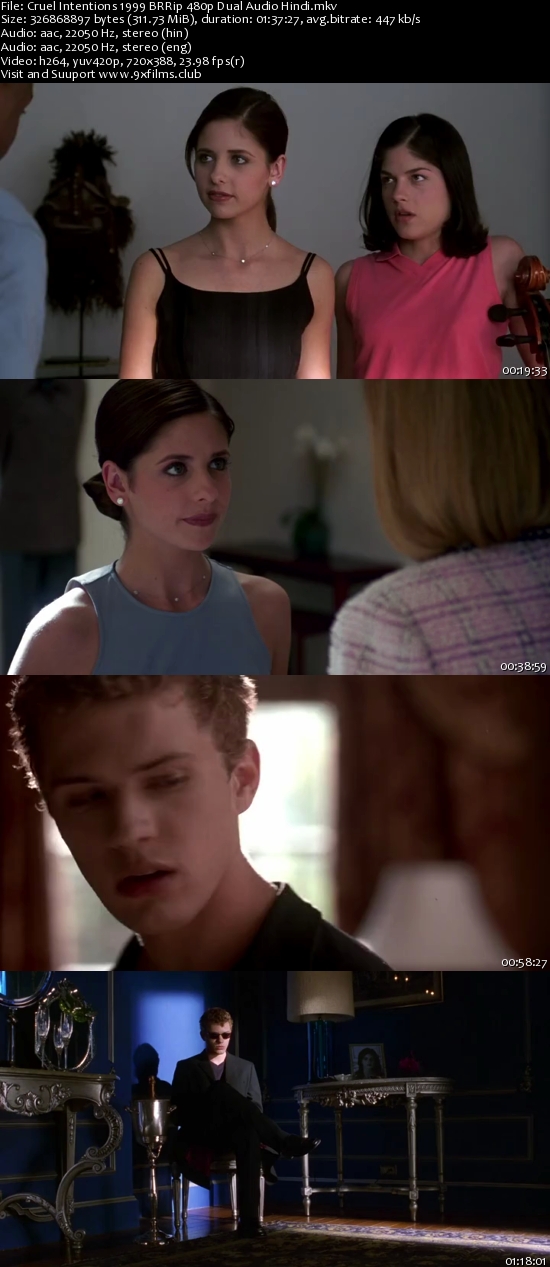 After all, these gestures and expressions are constantly used by people, even if they are not going to deceive anyone. The signal of deception is only a repetitive combination of such behavior and turns of speech. Look closely and listen, and then you will learn to accurately determine the lie of the interlocutor. But first, seriously think about whether you really want to know when you are being lied to. After all, in fact, people are deeply contradictory on the issue of their attitude to truth. When it suits us, we categorically insist on the truth, but bashfully we hush it up if we don’t like it. We are against lies, but we resort to it constantly under plausible pretexts and without them.
After all, these gestures and expressions are constantly used by people, even if they are not going to deceive anyone. The signal of deception is only a repetitive combination of such behavior and turns of speech. Look closely and listen, and then you will learn to accurately determine the lie of the interlocutor. But first, seriously think about whether you really want to know when you are being lied to. After all, in fact, people are deeply contradictory on the issue of their attitude to truth. When it suits us, we categorically insist on the truth, but bashfully we hush it up if we don’t like it. We are against lies, but we resort to it constantly under plausible pretexts and without them.  Five-year-old children shamelessly lie, manipulating others with flattery. By the age of ten, the skill of deception reaches perfection. And by the age of 16, a child is ready to lie to his mother one out of five times.
Five-year-old children shamelessly lie, manipulating others with flattery. By the age of ten, the skill of deception reaches perfection. And by the age of 16, a child is ready to lie to his mother one out of five times.  Often we deliberately participate in deception, justifying ourselves with good intentions. We diligently protect a person from the cruel truth, which, in our opinion, he should not know. We lie in order to smooth out the sharp corners of the relationship, in order to please each other: “you are not at all fat”, “you are the smartest”. Such deceit serves as a "lubricant" for the hard "gears" of life. Lies help create a beautiful world instead of a prosaic reality. Truth is what people want to believe. At the heart of any lie lies the truth, changed beyond recognition by the violent fantasy of a liar. In most cases, the reason people lie is self-deception - people deceive others in order to deceive themselves. A boring truth can be overshadowed by an attractive lie. Lying is an attempt to fill the gap between what we think we are and who we really are. It helps to realize our desires and fantasies about who we would like to be.
Often we deliberately participate in deception, justifying ourselves with good intentions. We diligently protect a person from the cruel truth, which, in our opinion, he should not know. We lie in order to smooth out the sharp corners of the relationship, in order to please each other: “you are not at all fat”, “you are the smartest”. Such deceit serves as a "lubricant" for the hard "gears" of life. Lies help create a beautiful world instead of a prosaic reality. Truth is what people want to believe. At the heart of any lie lies the truth, changed beyond recognition by the violent fantasy of a liar. In most cases, the reason people lie is self-deception - people deceive others in order to deceive themselves. A boring truth can be overshadowed by an attractive lie. Lying is an attempt to fill the gap between what we think we are and who we really are. It helps to realize our desires and fantasies about who we would like to be.  When a lie is uttered, the most important thing is not what it is, but why it was uttered. A lie ceases to be harmless when its purpose is to force another person to do something against his will, causing harm to him. For example, buying something completely useless at exorbitant prices or making a decision that could harm him. Such a deception must be able to distinguish and resist it with all your might. Lying is a collaborative action. By itself, a lie has no power, it is nothing more than empty words. And she gains power only when someone agrees to believe in this lie. The most disgusting liars are those who deceive for the purpose of mercenary manipulation, while trying to look like honest people.
When a lie is uttered, the most important thing is not what it is, but why it was uttered. A lie ceases to be harmless when its purpose is to force another person to do something against his will, causing harm to him. For example, buying something completely useless at exorbitant prices or making a decision that could harm him. Such a deception must be able to distinguish and resist it with all your might. Lying is a collaborative action. By itself, a lie has no power, it is nothing more than empty words. And she gains power only when someone agrees to believe in this lie. The most disgusting liars are those who deceive for the purpose of mercenary manipulation, while trying to look like honest people. 
THE TRUTH ABOUT LIES A SHIELD FROM DECEPTION
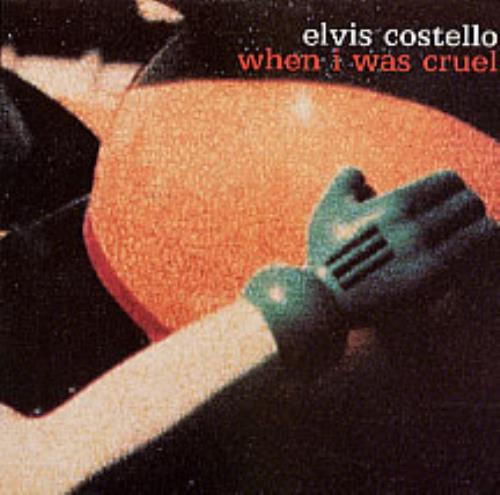 There are many similar things in the world of insects and plants. Here is an interesting example of a lynx hunting a hare. The lynx will not be able to catch up with the hare, stupidly running after it. She imitates an attack, but does not run after him, but waits. The hare, frightened, runs away, winding, confusing the tracks, trying to deceive the lynx by this, to mislead it. Do not look back at him. He makes a circle and returns to the same place where the lynx is already waiting for him, hiding. Each of them is fighting for his life. A lynx to starve to death, a hare to stay alive.
There are many similar things in the world of insects and plants. Here is an interesting example of a lynx hunting a hare. The lynx will not be able to catch up with the hare, stupidly running after it. She imitates an attack, but does not run after him, but waits. The hare, frightened, runs away, winding, confusing the tracks, trying to deceive the lynx by this, to mislead it. Do not look back at him. He makes a circle and returns to the same place where the lynx is already waiting for him, hiding. Each of them is fighting for his life. A lynx to starve to death, a hare to stay alive.  Urbanization is developing, people are getting crowded. At the same time, progress develops, new temptations appear. It is quite natural that people want to possess these temptations. Due to fierce competition, honest people are often fooled. Why? This is a separate topic and article. The cult of honesty is already in the past. People will continue to deceive each other as long as there is a shortage, as long as there is competition. This is a harsh reality and must be accepted. The powers that be are the generators of the cult of deceit. Why they do it is also a separate topic, but they do it, and the cult of deception flourishes.
Urbanization is developing, people are getting crowded. At the same time, progress develops, new temptations appear. It is quite natural that people want to possess these temptations. Due to fierce competition, honest people are often fooled. Why? This is a separate topic and article. The cult of honesty is already in the past. People will continue to deceive each other as long as there is a shortage, as long as there is competition. This is a harsh reality and must be accepted. The powers that be are the generators of the cult of deceit. Why they do it is also a separate topic, but they do it, and the cult of deception flourishes.  It has a constantly open port of trust. For this reason, he is easily deceived, which often happens. In the same way, a dishonest person sees himself in those around him, considers everyone to be deceivers and is always on his guard. It's hard to fool him. It must be understood that people only look very similar to each other. In the inner world between people there is often a bottomless abyss. One monster killed his mother, hid the corpse under the bed and slept peacefully on this bed for a whole week, such a case was real. But there are people who are able to sacrifice their lives to save others, there are many such cases and everyone knows about it. The question is, what is common between the first type and these people? Yes, only that everyone has two arms, two legs...
It has a constantly open port of trust. For this reason, he is easily deceived, which often happens. In the same way, a dishonest person sees himself in those around him, considers everyone to be deceivers and is always on his guard. It's hard to fool him. It must be understood that people only look very similar to each other. In the inner world between people there is often a bottomless abyss. One monster killed his mother, hid the corpse under the bed and slept peacefully on this bed for a whole week, such a case was real. But there are people who are able to sacrifice their lives to save others, there are many such cases and everyone knows about it. The question is, what is common between the first type and these people? Yes, only that everyone has two arms, two legs... 
Learn more
